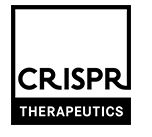预约演示
更新于:2025-05-07
BCR-ABL1 positive Acute Lymphoblastic Leukemia
BCR-ABL1阳性急性淋巴细胞白血病
更新于:2025-05-07
基本信息
别名- |
简介- |
关联
29
项与 BCR-ABL1阳性急性淋巴细胞白血病 相关的药物作用机制 Bcr-Abl T315I抑制剂 [+1] |
原研机构 |
在研适应症 |
非在研适应症- |
最高研发阶段批准上市 |
首次获批国家/地区 中国 |
首次获批日期2021-11-24 |
作用机制 Bcr-Abl抑制剂 [+1] |
原研机构 |
在研适应症 |
最高研发阶段批准上市 |
首次获批国家/地区 美国 |
首次获批日期2021-10-29 |
作用机制 CD19抑制剂 [+1] |
在研机构 |
原研机构 |
在研适应症 |
非在研适应症 |
最高研发阶段批准上市 |
首次获批国家/地区 美国 |
首次获批日期2014-12-03 |
16
项与 BCR-ABL1阳性急性淋巴细胞白血病 相关的临床试验NCT06672263
Phase I Clinical Trial to Evaluate the Safety and Tolerability of TQB3911 Tablets in Patients With BCR::ABL Fusion Gene Positive Leukemia
Phase I clinical trial to explore the safety, tolerability, and initial efficacy of TQB3911 tablets in BCR::ABL fusion gene positive leukemia.
开始日期2024-11-01 |
申办/合作机构 |
NCT06492304
A Phase 1/2 Dose Evaluation and Cohort Expansion Study of the Safety and Efficacy of Anti-CD70 Allogeneic CRISPR-Cas9-Engineered T Cells (CTX131) in Adult Subjects With Relapsed/Refractory Hematologic Malignancies
This is an open label, multicenter, phase 1/2 dose evaluation and cohort expansion study evaluating the safety and efficacy of CTX131 in subjects with Relapsed/Refractory Hematologic Malignancies
开始日期2024-08-13 |
申办/合作机构 |
ChiCTR2100044308
Flumatinib combined with chemotherapy for elderly Philadelphia chromosome/BCR-ABL1 positive acute lymphoblastic leukemia: a prospective study
开始日期2021-02-27 |
申办/合作机构- |
100 项与 BCR-ABL1阳性急性淋巴细胞白血病 相关的临床结果
登录后查看更多信息
100 项与 BCR-ABL1阳性急性淋巴细胞白血病 相关的转化医学
登录后查看更多信息
0 项与 BCR-ABL1阳性急性淋巴细胞白血病 相关的专利(医药)
登录后查看更多信息
373
项与 BCR-ABL1阳性急性淋巴细胞白血病 相关的文献(医药)2025-03-01·SAGE Open Medical Case Reports
Periorbital edema and phototoxic rash associated with dasatinib: A case report
Article
作者: Ugurlu, Bera Omer ; Malkan, Umit Yavuz
2025-02-25·Theranostics
CD19-targeted HSP90 inhibitor nanoparticle combined with TKIs reduces tumor burden and enhances T-cell immunity in murine B-cell malignancies
Article
作者: Ren, Juan ; Liu, Huashen ; Qin, Mengting ; Shi, Mengxin ; Chen, Xiaodong ; Zhang, Mingzhen ; Zhou, Wen ; Zhang, Weile ; Zhang, Shuyuan ; Ji, Yanhong ; Ma, Yunfeng ; Yang, Mei
2024-12-01·British Journal of Haematology
Efficacy and safety of olverembatinib in adult BCR ::ABL1 ‐positive ALL with T315I mutation or relapsed/refractory disease
Article
作者: Liu, Yuanfang ; Tang, Sijie ; Chen, Saijuan ; Ren, Jiayi ; Wang, Cheng ; Ouyang, Wanyan ; Peng, Lijun ; Weng, Xiangqin ; Hao, Jie ; Wang, Jin ; Liu, Weiyang ; Mi, Jian‐Qing ; Jing, Duohui ; Zhu, Yongmei
分析
对领域进行一次全面的分析。
登录
或

生物医药百科问答
全新生物医药AI Agent 覆盖科研全链路,让突破性发现快人一步
立即开始免费试用!
智慧芽新药情报库是智慧芽专为生命科学人士构建的基于AI的创新药情报平台,助您全方位提升您的研发与决策效率。
立即开始数据试用!
智慧芽新药库数据也通过智慧芽数据服务平台,以API或者数据包形式对外开放,助您更加充分利用智慧芽新药情报信息。
生物序列数据库
生物药研发创新
免费使用
化学结构数据库
小分子化药研发创新
免费使用




